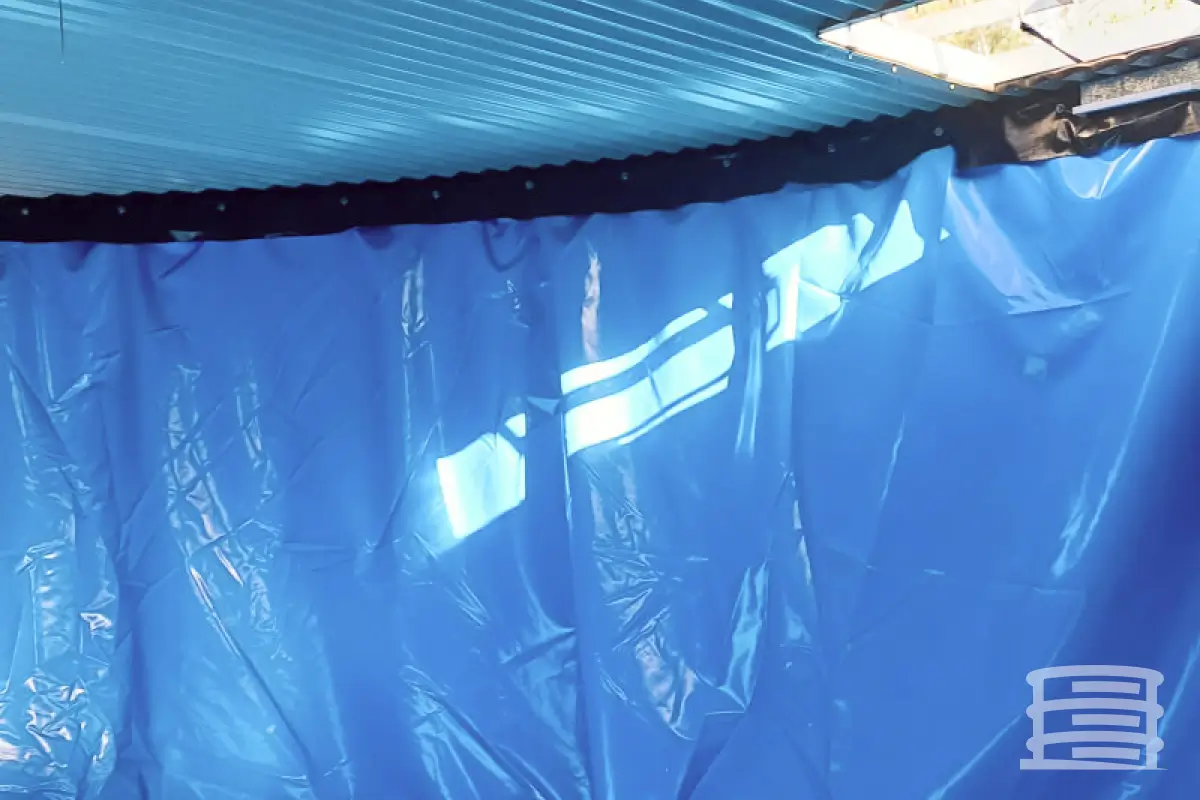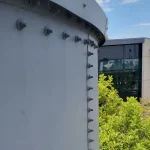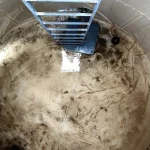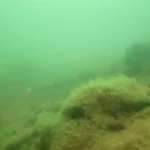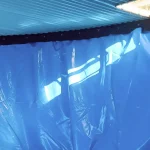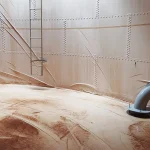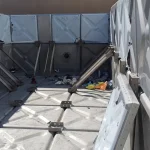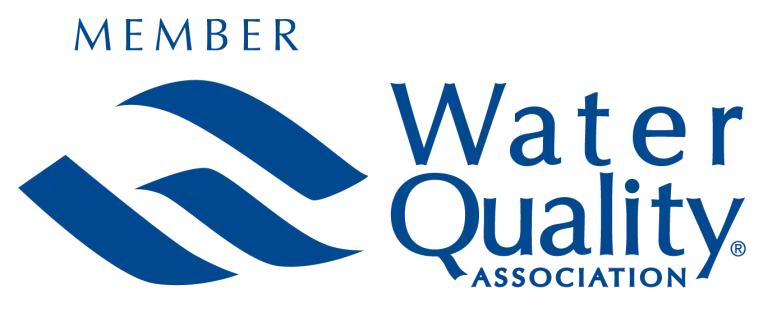Considering the current environmental regulations mandated by the government, the significance of containment methods cannot be overstated. Employing internal flexible PVC tank liners presents a cost-effective solution for both primary containment and corrosion protection for your large storage tank.
A PVC tank liner serves as a durable yet flexible lining material with chemical resistance properties. Positioned within the tank, the liner acts as the primary containment barrier for the stored material, ensuring its interaction solely with the liner.
In situations requiring secondary spill containment, PVC tank liners are highly effective. Secondary containment involves an additional barrier or outer wall, serving as a double enclosure to prevent hazardous substance leakage and to protect against water and soil contamination. Furthermore, it reinforces storage systems by containing materials that may pose risks such as corrosion, combustion, reactivity, flammability, or toxicity.
Within the realm of flexible pond liners, polyvinyl chloride (PVC) liners emerge as the most economically feasible choice.
In comparison to EPDM liners, PVC liners are lighter and offer slightly better resistance to punctures. Moreover, PVC liners are relatively flexible, enabling the use of liner tape to join multiple sheets together to conform to the shape of your pond.
Despite these advantages, PVC pond liners are not widely used in ponds due to certain drawbacks. Mainly, due to the manufacturing process, PVC pond liners often contain trace amounts of arsenic and other chemicals harmful to fish.
Resistant to Corrosive Chemicals
Over time, metal storage tanks can weaken and leak due to a process called corrosion. This happens when the metal reacts with its environment, causing it to break down. To prevent this, many people choose PVC tank liners. Unlike metal, PVC is highly resistant to the chemicals that cause corrosion. So, these liners won’t rust or degrade over time, keeping your water tank in top condition.
Benefits of PVC Tank Liners
Choose PVC for your industrial tank liners when outfitting your storage tank.
Opting for this type of tank liner offers the following benefits:
- Exceptional Flexibility: PVC tank liners demonstrate remarkable flexibility, maintaining high interface friction without developing texture, allowing them to easily conform to subgrade contours.
- Abrasion Resistance and Puncture Strength: PVC exhibits outstanding resistance to abrasion and possesses high puncture strength. Additionally, it shows resistance to various industrial chemicals.
- Time Savings: By installing a PVC tank liner, your facility can save time that would otherwise be spent on-site fabrication and application of coatings.
- Straightforward Installation: Numerous PVC liners can be installed within a single day. Moreover, they are less complex to construct compared to double-walled tanks.
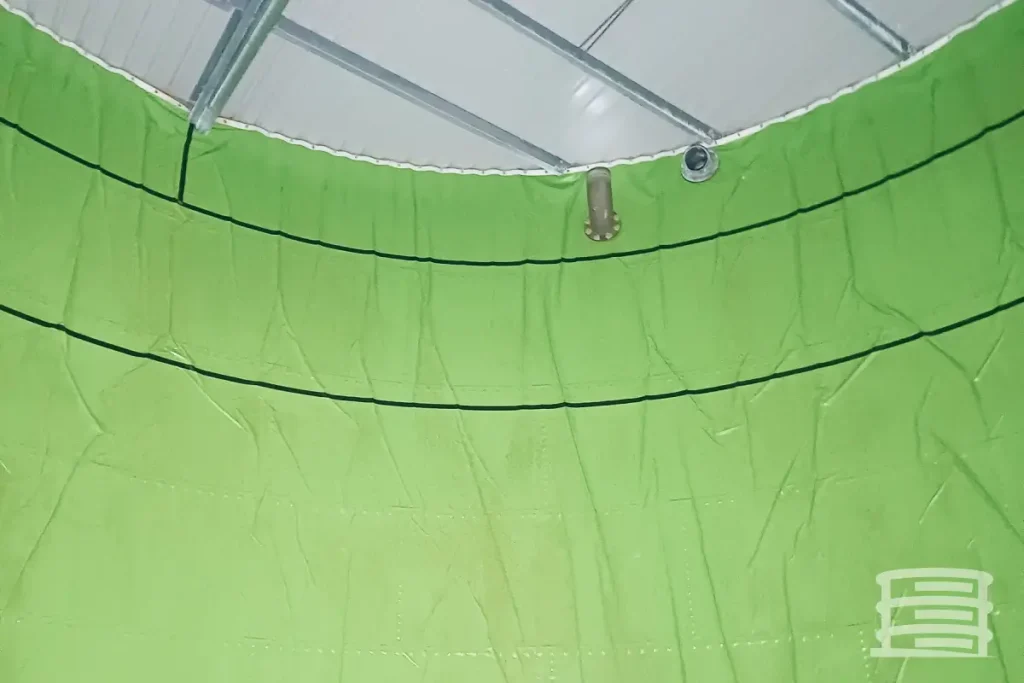
Simple to Install and Highly Resistant to Corrosive Chemicals
Corrosion occurs when substances possess sufficient acidity, alkalinity, or oxidizing properties to degrade an object’s structure. This degradation can happen rapidly or gradually over time. The use of an improper material can result in the swift deterioration of a storage tank. Therefore, our customized fabrication process incorporates plasticized PVC, renowned for its flexibility, exceptional durability, and ease of installation when utilized as one of our flexible tank liners. Tank lining systems must be adaptable to conform to a tank’s internal contours and accommodate various environments, including trenches and secondary containment areas. Durability is crucial, particularly in the presence of hazardous chemicals. PVC demonstrates remarkable resistance to abrasion, punctures, and a wide range of industrial-grade chemicals.
PVC liners stand out as highly impermeable and pliable lining materials, earning their reputation as one of the most reliable options in the industry for water, chemical, and waste containment. Their applications span from landfills and coal ash ponds to stormwater management systems.
PVC, or polyvinyl chloride, is a solid synthetic rubber, typically white or light-colored, with a smooth surface. This type of liner, also known as vinyl, resists abrasion, tears, gouges, and cuts. It maintains resilience and does not degrade or become brittle over time, making it an excellent long-term investment. PVC also resists various chemicals, including acids, oils, and solvents. However, it is not resistant to strong bases or acids.
For a more in-depth discussion on any of the topics covered here, feel free to reach out to our friendly and experienced customer service team. We provide reliable services in Houston, Texas, and Long Beach, California, ensuring comprehensive support tailored to your needs.
Call NFPA 25 Inspections by American Tanks at +1 800 656 0167
Or email at info@nfpa25inspections.com
